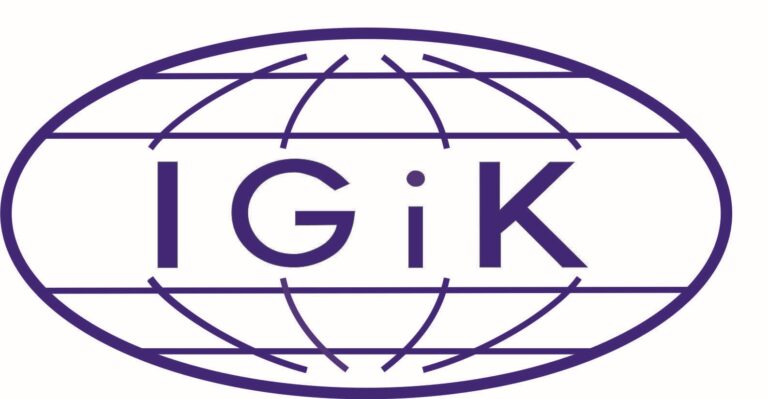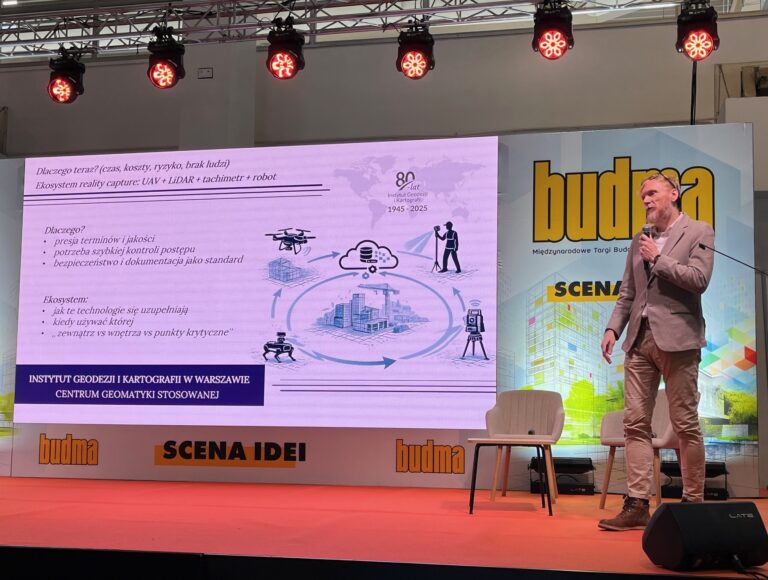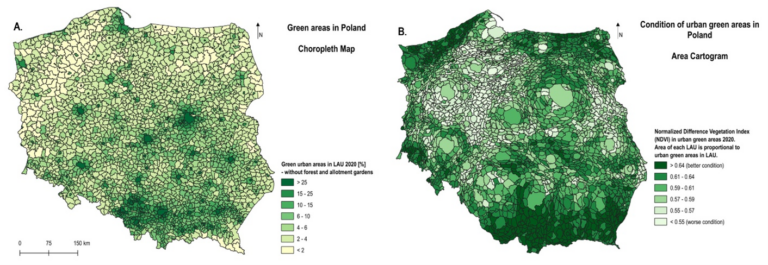In July, MSc Eng. Magdalena Łągiewska, MSc Karol Paradowski, and MSc Konrad Wróblewski, employees of the Remote Sensing Centre at the Institute of Geodesy and Cartography, successfully completed their postgraduate studies in “Data Science in Business” at the SGH Warsaw School of Economics.
During the course, they explored modern methods of data analysis and their practical applications, culminating in the preparation of diploma theses.
Magdalena Łągiewska
Thesis title: “Analysis and Prediction of Agricultural Drought Risk in Poland Based on Satellite Data”
The aim of the thesis was to develop methods for assessing and forecasting agricultural drought risk in Poland based on satellite observations and meteorological data.
Magdalena applied an integrated drought index describing the conditions of agricultural areas, which was later used to build predictive models. She utilised advanced data science techniques, including time series modelling and machine learning algorithms such as logistic regression, Random Forest, and XGBoost.
Spatial analyses revealed significant regional variability in drought risk. The study demonstrated that these methods enable effective identification of drought episodes and forecasting their occurrence, contributing to the development of early warning systems. The results also highlighted the potential of modern technologies and confirmed the usefulness of combining satellite data with statistical models for climate risk management in agriculture.
Karol Paradowski
Thesis title: “Validation of Agricultural Drought Maps in Poland Based on the NDVI Index Derived from Sentinel-2 Satellite Data for Selected Winter Crops”
The thesis aimed to assess the reliability of agricultural drought maps by validating them using the NDVI index generated from Sentinel-2 imagery. The analysis covered the years 2021–2024 at the voivodeship (regional) level, focusing on winter wheat as a representative crop.
Karol conducted correlation analyses in sliding seasonal windows, applied linear regression models (achieving seasonal R² up to 0.77), and used linear mixed models that accounted for seasonal differences in baseline NDVI. The mixed model with a random seasonal effect best captured inter-seasonal variability, achieving the lowest values of AIC and BIC information criteria.
The results confirm that high-resolution NDVI data are a valuable tool for independent validation of drought maps and can support both administrative and agricultural decision-making.
Konrad Wróblewski
Thesis title: “Using Machine Learning to Forecast NO₂ Concentrations Based on Satellite Meteorological Data”
The aim of the thesis was to evaluate the effectiveness of selected machine learning algorithms in forecasting nitrogen dioxide (NO₂) concentrations using meteorological data derived from ERA5-Land satellite reanalyses of the Copernicus programme.
Konrad applied various machine learning algorithms, including Random Forest, XGBoost, and artificial neural networks, to capture non-linear relationships between weather conditions and NO₂ levels. The analyses revealed that air circulation variables — particularly wind speed and wind direction — had the strongest influence on prediction accuracy.
We warmly congratulate Magdalena, Karol, and Konrad on completing their postgraduate studies and invite everyone to attend an upcoming seminar, during which they will present the results of their diploma theses.



